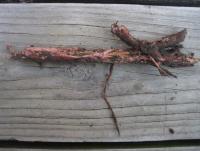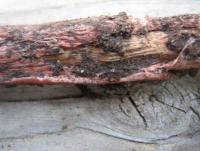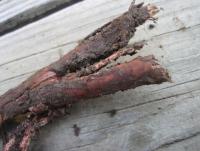
mira
Members2-
Posts
142 -
Joined
-
Last visited
Content Type
Profiles
Forums
Events
Blogs
Gallery
Store
Everything posted by mira
-
VICE produced a nice video on segment on khat in Kenya in light of the proposed UK ban. It's a nice summary of the system of trade and the economies that depend on the our favorite cathninone containing shrub. Really nice shots of an international culture which I haven't seen detailed anywhere else except the fairly academic book Kenyan Khat. Check it out:
- 7 replies
-
- 6
-

-
- khat
- catha edulis
-
(and 4 more)
Tagged with:
-
Thanks for the response, Zaka. Interesting to know that they are flowering year round for you. At what age/height did they start flowering for you?
-
What time of the year do they normally flower and fruit in say Mexico, Brazil, and Australia?
-
Ghostery sells information to ad corporations. Disconnect (at the moment) is a better option. Unfortunately Ad Block Plus also sells information to advertisers which led to several development forks. I'd recommend Adblock Edge under Firefox and regular Adblock under Chrome.
-
Giveaway - Synsepalum dulcificum (Miracle Berry) fruit/seeds
mira replied to endorfinder's topic in Seed & Plant Swaps
Correct, they only work with sour tastes and not bitter. As neat as a novelty they are, it's rather disappointing after a bit if you have a palate that likes more complex tastes. The miracle fruit definitely "ruins" the taste of citrus and other sour fruits for me by making them either fairly insipid and/or way too sweet.- 23 replies
-
- synselapum
- dulcificum
-
(and 1 more)
Tagged with:
-
It would definitely be worth it to check out the Huntington Botanical Garden near LA, The Berkeley Botanical Garden near San Fransisco, Lotusland near Santa Barbara if you will be near them. All of them have pretty extensive cactus gardens. There's a whole host of other botanical gardens and private gardens I haven't managed to check out as well. If you're there during wet season, you'd be a fool to skip out on hunting mushrooms around the Bay Area and North of it too. We've got at least a couple of CA natives on the board so maybe they'll have better tips. I think Big Sur is a must, but that's for it's natural beauty rather than any specific botanical draw.
-
I've done it in the past. It's a pretty hectic schedule, and I don't really think very sustainable for more than a year or so at best. I definitely did not enjoy either work or school when I was doing it. Online and weekend coursework make it much more doable, but don't expect to have any free time if you are trying to get good grades.
-
This documentary based on the 2008 book by the same name is about people obsessed with collecting, preserving, and crossing rare fruit species and varieties. It's almost if one traded a Trichocereus or medical plant obsession strictly for tropical fruit. It's pretty fascinating really. The story features among others two mango conservators from the Fairchild Tropical Botanical Garden hunting down a white fleshed mango and maintaining their 600+ variety mango collection and a Hondouran scientist with a very involved (1 seed in 1000 banana clusters!) Cavendish banana breeding program. It's on youtube now: Part 1 - The Evolution of Desire [44:33] Part 2 - Defenders of Diversity [44:33]
- 3 replies
-
- 4
-

-
- sustainability
- monoculture
- (and 8 more)
-
How old is that colubrina, Micromegas?
-
It was only 8 months old when I planted it. It had stalled out at about 1.5 meters high in a 1 gallon (nominal size so ~3 L actual?) pot so I planted it along with a sibling in a neglected but sunny corner of the garden. They grow quite quickly given root space. Hmm, I tossed the root in a bed. I'll see if I can find it and if the color fades upon drying.
-
Ended up digging a 1m x 1m x 1 m hole to plant a large pachanoid in the other day and hit this root while digging. The hole is 6-7 meters away from the nearest Mimosa hostilis I have growing. Based on my observation of dried material I think this might be a root from that plant which is 15 ft tall and has been in the ground (heavy clay soil) 1-2 years. Can anyone with experience (Zaka,Kada, PH?) confirm?
-
Awesome! Did your seed grown havanese flower yet?
-
You know you might feed a slightly dehydrated plant dyed water as kind of a "contrast agent" for visualization of the vascular system. I'm not sure if it would work, but if it would that would make for some really interested photos and I think make it easier to determine the best sized/shaped scion for grafting.
-
If I remember correctly freshwater snails can cause schistosomiasis, but I think you're talking about angiostrongyliasis which can cause meningitis. The nematodes for angiostrongyliasis can be carried my many species of land snails, freshwater snails, and slugs.
-
Albino and variegated traits in Trichocereus seedlings
mira replied to Stillman's topic in Cacti & Succulents
Lumberjack is a bridgesiioid (probably some sort of bridgesii X peruvianus). There's a mention of it is Trout's Notes on San Pedro on page 41. -
Yes, you got the name order correct. Pm'ed.
-
The Experiment as in the German one "Das Experiment" with Mortiz Bleibtreu of Lola Rennt (Run Lola Run) fame? Unfortunately not historically accurate at all/a bit sensationalist, but a good movie none the less.
-
Tossing my hat in for this one with the understanding I'd be responsible for Int. postage if I read that right.
-
Chipped bamboo works well. I'd imagine anything lignin rich should work a treat since cardboard works. Maybe the chip form of coco wouldn't be too bad.
- 12 replies
-
Yes, it was you, bogfrog. Well I guess you can't win your own contest, but you should post it here.
-
I forget the user, but there was a guy someone who posted a picture of himself as a tyke trying to help his kitten grow big and strong by watering it. Hands down that picture wins. I want to say it was GoOnThen, but I may be mistaken. Can't seem to find the post. Edit: It was bogfrog as she pointed out below.
-
That's a really bad analogy. Mechanics have to carry much more liability due to the nature of their business and the fact that they are responsible for fixing complex systems that can seriously hurt not only the mechanic, but also others if they make mistakes. The nature of their work also requires much more space and many more tools--and expensive and specific ones at that. Fixing a car requires replacement parts, consumables, and hazardous waste disposal fees which usually make up a sizable amount of the fee you are charged. Hairdressers on the other hand aren't subject to the same sort of litigation. Even the most advanced have a relatively simple set of tools which are not expensive compared to almost all of the tools a mechanic owns. Almost no space is required for a hairdresser, and as such most space is leased on a very small scale and some even opt to cut strictly at their or their clients' houses. While hairdressing does require some simple consumables, the costs are paltry compared to replacement parts for a car. Most hairdressers here are not employees of a salon, but independent contractors renting chair space. Then mechanics do not only serve consumers, but also businesses and governmental departments including some mechanics that are solely responsible for managing fleets; it is not only consumer demand that drives the labor market. Then there is the fact that hairdressers at least here can make the same if not a higher wage than a mechanic if you compare the cost of shop time with the average time and cost of a haircut or complex styling job. So essentially the lower wage is a myth perceived by those not familiar with running a business. I bet take home salary on a per hour basis is not that different for the sort of skilled hairdresser you are talking about and auto mechanics. For example, a haircut and an oil change take about the same time to perform, but a haircut does not come with costs like a filter and oil and disposal fees. If you look at just the cost of just the labor involved, the hairdresser makes more despite the higher overhead that comes with owning an auto shop and all of the equipment necessary. I'd argue that the popularity of a profession is usually dependent on how much it is paid (and the time and skill required to get there) not the other way around. Let me ask you why a veteran paramedic (much more training than an EMT) makes less than a secretary, hairdresser, etc.?
-
Happy Birthday, EG!
-
Beer? In some places it is a cheap if not cheaper than sugary drinks.
-
Hey nitrogen, If you are still in touch with malo, I remember he thought that huarazensis, TJG, and his KK2150 (distinct from forms I've seen with the same label) might all be the same and he was hoping to confirm based on flower morphology. Was he ever able to make this comparison? If so, what were the results? Here's an older picture of malo's mother plant:


